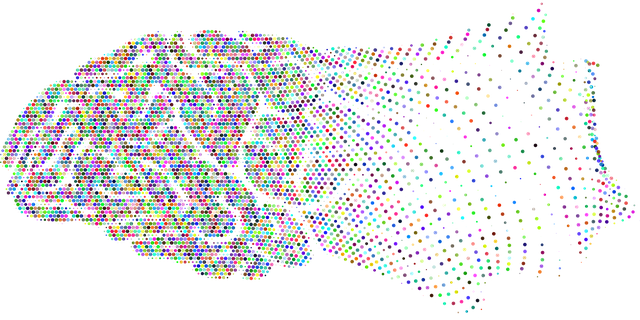Understanding Mental Health Data is crucial for effective analysis, requiring careful preparation to ensure accuracy and consistency. Techniques like mindfulness, proven beneficial for adults in therapy, enhance dataset quality by capturing nuanced emotional responses. Cultural sensitivity and strategies like Social Skills Training improve data interpretation, addressing biases and ethical concerns. Incorporating Therapy for Adults Mindfulness techniques allows analysts to uncover hidden patterns in textual data, leading to deeper insights into patient experiences and struggles. This is particularly valuable in Mental Health Policy Analysis and Advocacy, as well as Mental Wellness Coaching Programs, promoting personalized therapy tailored through cultural competency training. Despite challenges like privacy risks, evolving digital platforms, and lack of standardized tools, mindfulness and cultural sensitivity remain key for accurate diagnoses and effective interventions aimed at improved mental well-being.
Mental health data analysis is a burgeoning field, with the potential to revolutionize personalized care. As we delve into this complex landscape, understanding how to collect, prepare, and interpret data becomes crucial. This article explores these aspects through the lens of Therapy for Adults Mindfulness techniques, providing insights into unlocking valuable mental health trends. From effective data preparation methods to ethical considerations, we navigate the challenges, ultimately aiming to enhance patient outcomes by harnessing the power of analysis.
- Understanding Mental Health Data: Collection and Preparation
- Applying Therapy for Adults Mindfulness Techniques in Data Analysis
- Interpreting Findings: Unlocking Insights for Personalized Care
- Challenges and Ethical Considerations in Mental Health Data Interpretation
Understanding Mental Health Data: Collection and Preparation

Understanding Mental Health Data is a crucial step in any analysis process. Collection methods vary widely, from self-reported surveys to clinical assessments and electronic health records (EHRs). The data itself can be rich but often requires careful preparation to ensure accuracy and consistency. For adults seeking therapy, mindfulness practices have shown promise as both a therapeutic tool and a method for self-care, influencing mental health outcomes that are captured in these datasets.
Effective data preparation involves cleaning, normalizing, and categorizing information to facilitate analysis. This process includes addressing missing values, identifying outliers, and ensuring compliance with privacy regulations. In the context of healthcare, cultural sensitivity is paramount. Techniques like Social Skills Training and Burnout Prevention Strategies for Healthcare Providers can enrich data by considering diverse perspectives and enhancing patient-provider interactions, ultimately improving mental health data quality and interpretation.
Applying Therapy for Adults Mindfulness Techniques in Data Analysis

Incorporating Therapy for Adults Mindfulness techniques into mental health data analysis offers a powerful approach to understanding complex patient profiles. These mindfulness practices, designed to enhance focus and awareness, can significantly improve the interpretation of vast datasets. By promoting non-judgmental observation, analysts can identify subtle patterns and trends that may otherwise go unnoticed. For instance, mindful attention to textual data, such as therapy session notes or online forums, can reveal underlying themes and emotional narratives, providing deeper insights into individuals’ experiences and struggles.
This method is particularly valuable in Mental Health Policy Analysis and Advocacy, where understanding patient journeys is key to shaping effective strategies. Moreover, integrating mindfulness can enhance the development of Mental Wellness Coaching Programs, as it enables coaches to respond more attentively to clients’ unique needs. Effective communication, a critical aspect of any therapeutic process, is also fostered through mindfulness, ensuring that data interpretations are nuanced and respectful of individual experiences.
Interpreting Findings: Unlocking Insights for Personalized Care

Interpreting findings from mental health data analysis is a pivotal step in unlocking valuable insights that drive personalized care. By translating complex information into actionable knowledge, healthcare providers can tailor therapy for adults, addressing unique needs and preferences with greater precision. This individualized approach leverages the power of mindfulness techniques, enhancing emotional intelligence and fostering more effective therapeutic outcomes.
The process involves careful consideration of cultural competency training received by healthcare providers, ensuring they can sensitively interpret data across diverse populations. Mental health education programs designed with a focus on this aspect empower professionals to recognize and respect differences in culture, language, and personal experiences. This, in turn, leads to more accurate diagnoses and effective interventions, ultimately promoting improved mental well-being for all individuals seeking therapy.
Challenges and Ethical Considerations in Mental Health Data Interpretation

The interpretation of mental health data presents a complex landscape with numerous challenges. One significant hurdle is ensuring the privacy and confidentiality of sensitive personal information. As data collection methods evolve, from traditional surveys to digital platforms, the risk of unauthorized access or misuse increases. Additionally, cultural biases in data can lead to misinterpretations, especially when diverse populations are involved. For instance, what constitutes a healthy emotional response might differ across cultures, impacting the validity of analysis.
Ethical considerations further complicate mental health data interpretation. The potential for unintended consequences must be acknowledged, particularly when using AI and machine learning algorithms. These tools can identify patterns but may struggle with nuanced human experiences. Furthermore, the lack of standardized measurement tools across different therapy types, such as mindfulness practices or emotional intelligence training, makes direct comparisons challenging. This inconsistency hampers the development of comprehensive mental wellness coaching programs and self-care routine recommendations tailored to diverse adult needs.
Mental health data analysis, enhanced by Therapy for Adults Mindfulness techniques, offers a powerful tool for personalized care. By understanding and interpreting collected data effectively, we can unlock valuable insights into individual needs, leading to more tailored interventions. However, navigating the challenges and ethical considerations inherent in this process is paramount. Through responsible practices, we can ensure that mental health data analysis contributes positively to improved patient outcomes and a more compassionate healthcare system.









